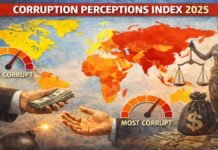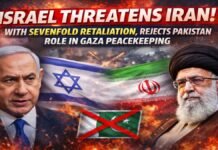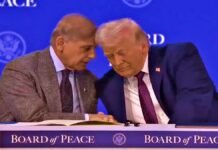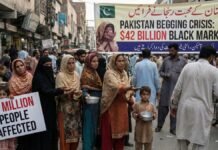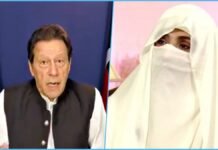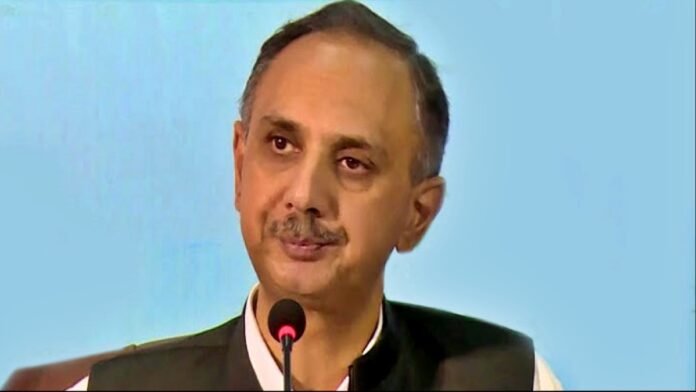
New Delhi: Pakistan’s political landscape is in turmoil after the Feb 8 national election, which resulted in a hung parliament and allegations of massive rigging. The Pakistan Tehreek-Insaaf (PTI) party, led by former Prime Minister Imran Khan, who is currently in jail, has nominated its general secretary Omar Ayub as its candidate for the top post, while the Pakistan Muslim League-Nawaz (PML-N) and the Pakistan Peoples Party (PPP) have formed a coalition to challenge the PTI’s claim to power.
According to the Dawn newspaper, PTI leader Asad Qaiser announced Omar Ayub’s nomination on Thursday, after meeting with Imran Khan at Adiala Jail. Qaiser said that Imran Khan would soon announce a date for a countrywide protest campaign against the alleged rigging of the election, which he called “the worst and most rigged election in our history”.
Qaiser also said that he had been tasked by Imran Khan to engage with all the political parties that are protesting against the election results and to devise a joint strategy to restore the people’s mandate. He said that the PTI had won the most seats in the election, but was denied the majority by the manipulation of the votes.
The election commission of Pakistan has declared the results of 268 out of 272 seats in the National Assembly, the lower house of parliament. According to the official figures, the PTI has secured 92 seats, followed by the PML-N with 64, the PPP with 43, and the Muttahida Majlis-e-Amal (MMA) with 12. The remaining seats are divided among smaller parties and independent candidates.
However, the PTI’s victory was marred by a crackdown on its candidates and supporters by the security forces, who were accused of favoring the PML-N, the party of former Prime Minister Nawaz Sharif, who was ousted by the Supreme Court in 2023 on corruption charges. Many PTI candidates had to run as independents, and some of them were arrested or disqualified before the election. The PTI also alleged that the election commission and the caretaker government failed to ensure a free and fair election and that there were widespread irregularities and fraud in the vote counting and transmission process.
On the other hand, the PML-N and the PPP, the two main opposition parties, have joined hands to form a coalition government, along with some smaller parties, such as the Awami National Party (ANP), the Balochistan National Party (BNP), and the Jamiat Ulema-e-Islam (JUI-F). The coalition claims to have the support of 153 members of the National Assembly, more than the required number of 137 for a simple majority.
The coalition has nominated Shehbaz Sharif, the younger brother of Nawaz Sharif and the president of the PML-N, as its candidate for the prime minister’s office. Shehbaz Sharif had previously served as the prime minister for 16 months between 2022 and 2023 after Nawaz Sharif was disqualified. He is widely seen as a pragmatic and pro-development leader, who has good relations with the military and the international community.
The PPP, which is co-chaired by Asif Ali Zardari, the former president, and his son Bilawal Bhutto Zardari, the foreign minister in the 2022-23 government, has agreed to support Shehbaz Sharif as the prime minister but has decided not to take any ministerial positions in the coalition government. The PPP has said that it will back the prime minister on an issue-to-issue basis and will focus on strengthening the democratic institutions and provincial autonomy in the country.
The coalition also expects Asif Ali Zardari to return to the presidency, which is a largely ceremonial role but has some powers to appoint key officials and dissolve the parliament. Zardari served as the president from 2008 to 2013, after his wife, the former Prime Minister Benazir Bhutto, was assassinated in 2007. He is currently facing several corruption cases, which he denies.
The election of the prime minister and the president is expected to take place in the first week of March after the new members of the National Assembly take oath. The election commission has said that it will complete the verification and consolidation of the election results by Feb 28.
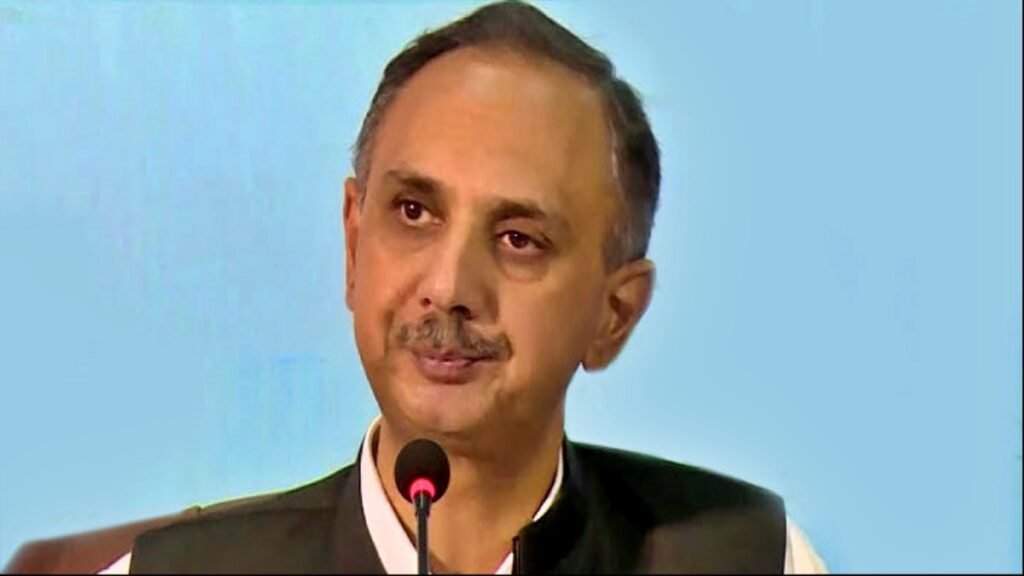
The political uncertainty and instability in Pakistan have raised concerns among regional and international observers, who have urged the parties to resolve their differences peacefully and democratically. Pakistan is a nuclear-armed country, which faces several challenges, such as terrorism, poverty, inflation, and external debt. It is also a key ally of the United States in the war against terrorism and a strategic partner of China in the Belt and Road Initiative.




